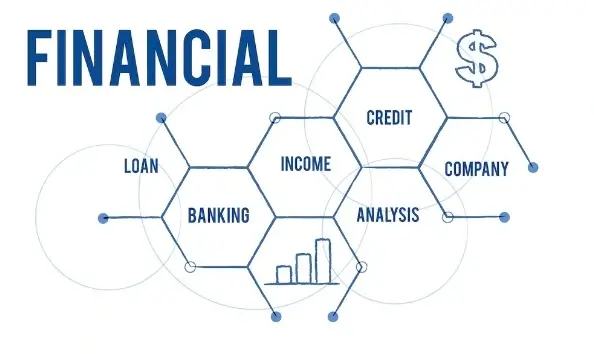Post-CFP Job Opportunities For Finance Aspirants

Here's What We've Covered!
MBA, CA, CFP, ACCA, CIMA and so on and on. There are so many great courses in the financial markets these days that it is hard for all finance students to make a choice. Each of these offers different career opportunities, and each one of these is excellent.
The Certified Financial Planning course is one of the shortest courses and is quite amazing if you look forward to great post-CFP job opportunities in India. A financial background is optional to take this exam. But what does it offer? And how hard is it to get this certificate?
Let’s find out!
What is CFP?
If you’re seeking short finance courses, the Certified Financial Planning course is a rewarding choice. People who have a thorough awareness of ethics and are well-versed in the ideas of risk analysis and financial planning are awarded the CFP certification. The CFP program is renowned throughout the world and is one of the elite programs that the international financial sector accepts and respects.
Certified Financial Planners are given an advantage by financial institutions over other applicants. As a result, when looking for positions in the finance industry, the CFP certification makes a person stand out from the competition. A certification in this course opens a number of doors for CFP job opportunities in India as well as internationally.
Is it beneficial to pursue CFP certification?
CFP certification is one of the most recognised and respected certifications in the finance world globally. Getting CFP certification is beneficial because
- It is one of the world’s most esteemed and widely recognised financial courses.
- It accelerates career growth with its high demand in almost all financial sectors.
- It gives them the ability to give clients full financial advice.
- It earned the rating of “One of the best Jobs” by World Report and U.S. News
- It is a rewarding and fulfilling work experience for students with a B.Com degree.
- 26 nations recognise the CFP certification.
- It aids in the development of financial planning expertise.
- The syllabus covers in-depth knowledge of financial planning.
Know more about IMS Proschool’s CFP Course
What is the career path for CFP?
Given their availability in various industries, there is a wide range of CFP career opportunities. There are several prospects for CFP scope in public and private sectors in India. You also get access to the world market in the private sector.
Graduates of the CFP program can find jobs for CFP in a number of industries, including consulting in finance, banking, investing, risk management, office administration, relationship management, portfolio management, etc. Students receive professional training in the program to manage the varied obstacles in each course-related field.
Areas of Recruitment for Certified Financial Planners
Graduates of the course have various CFP job opportunities in many fields associated with financial planning, such as accounting, risk management, investing, etc. The CFP compensation package that a graduate earns is significantly influenced by their area of specialisation and the demands of their position.
Along with it, knowledge of the subject area, soft skills and intellectual abilities are crucial. The demand for CFP positions will only grow due to increased interest and trends in economic prospects. The many jobs for CPF that provide a significant CFP fresher salary are
- Financial Management
- Investment Banking
- Mutual Funds Market
- Product Specialisation
- Data Management
- Financial Planning
- Research Organisations
- Paraplanning
- Portfolio Management
- Relationship Management
CFP Career opportunities to explore after the Course
A CFP certification provides you with a career opportunity in either the financial or investment sectors. While some roles in both these sectors sometimes overlap, there’s a huge difference as well. Let’s see the top 3 roles in each of these sectors that are perfect jobs for CFP graduates.
Financial Services Roles
Source: Freepik
Personal Financial Planner
A financial planner works with clients to develop personal budgets, manage spending, set savings objectives, and put wealth-building plans into action. They might collaborate with investment managers, mutual fund firms, or financial advisers, using these professionals to manage the real investments of their client’s money.
The position demands keeping up with changes in tax legislation, financial product developments, and personal financial management techniques, particularly concerning estate planning and retirement plans. Success also requires the capacity to sell, both in terms of acquiring new clients and coming up with innovative ways to enhance the financial status of current clients.
Associate Advisor
The Associate Adviser ensures that clients’ affairs are proactively planned and handled to improve their financial situation. To oversee the advice delivery process from beginning to end, including client connections, technical capabilities, and delivery by the team, they collaborate closely with chosen Wealth Advisers.
The Associate Adviser works closely with clients and their professional advisers to provide value by thoroughly understanding each client’s financial situation.
Wealth Manager Specialist
A subcategory of financial advisors known as wealth managers, typically provides wealth management services to high- and ultra-high-net-worth customers. However, a wealth manager’s responsibilities go far beyond just giving investing advice. They concentrate on providing comprehensive services that include every aspect of a person’s financial life.
This can involve financial planning and investment management, as well as accounting and tax services, estate planning, retirement planning, and retirement planning.
Investment Advisory Roles
Source: Freepik
Investment Manager
An investment manager is a person who uses a variety of tactics to manage the money of individuals or organisations to create a return on investment (ROI). Their responsibilities include keeping an eye on the performance of the assets they ignore and choosing the correct times to buy and sell securities like bonds and stocks.
Clients that use investment managers can manage their current assets. They accomplish this by spotting market investing possibilities. The goal of investment bankers is to raise fresh cash. They do this by developing new investment opportunities, such as managing mergers and acquisitions or conducting initial public offerings (IPOs).
Financial Analyst
A financial analyst provides business advice to an organisation based on the analysis they conduct of variables, including market trends, a company’s (or firms’) financial situation, and the anticipated results of a particular type of deal.
The main task of financial analysts is to develop financial models that can forecast the effects of specific business choices. They need to gather a lot of financial data and take into account things like financial market trends and similar historical transactions to do this successfully.
Portfolio Manager
A portfolio manager is either a person or a group of individuals who are responsible for managing daily portfolio trading, implementing an investment strategy, and investing the assets of a mutual, exchange-traded, or closed-end fund.
A portfolio manager is one of the most crucial things to consider when looking at fund investing. Active or passive portfolio management is possible, and historical performance data shows that only a tiny percentage of active fund managers routinely outperform the market.
Eager to know more on Career after CFP Course?
How to land lucrative CFP job opportunities post-certification?
Source: Freepik
To get a lucrative job after having the CFP certification, you must take the course seriously and from the right institute. Once you have passed the exams, you will get various CFP job opportunities in India and abroad through job portals.
IMS Proschool provides CFP careers and placement assistance as well. It is all taken care of, from helping you with your resumes to practising interviews. Once you shortlist the companies you want to work with, they can help secure a discussion.
Since the course ensures multiple CFP career opportunities, there will be ample options for you to choose from.
IMS Proschool provids 100% placement support to their CFP Students
Conclusion
One of the most lucrative yet unstable industries in the working field is finance. If you lack inside-out knowledge of the financial issues, losses can also happen in addition to success, which can come at a high cost.
The CFP program is one of those highly recommended programs that help you get a strong foundation of knowledge and skills. IMS Proschool is FPSB’s official learning partner, which teaches the course with active learning methodology and even provides career guidance.
To secure the best CFP jobs in India’s finance sector, book your demo class today!
FAQs
How do I get started with CFP certification?
To get started with CFP certification, you must complete a CFP Board-registered education program. You can start by enrolling in IMS Proschool’s CFP program. The only eligibility is that you must be over 18 years old and have cleared your HSC exams.
Is CFP difficult to pass?
Yes, the CFP exams are a bit difficult to pass. It had a pass rate of 62% in 2019.
I took the exam but could not pass. Should I retake the course?
If you decide to retake the course, it will boost your chances of passing the exam. But remember that you only get 5 attempts to clear the exams.
How soon should I pass all the exams?
You are more likely to pass the CFP exam on the first attempt if you prepare with IMS Proschool. After graduating, you can take the exam in 6 to 8 months.
Can I take the CFP program on my home or work computer?
Yes, you can as long as you comply with the technical requirements like the screen resolution, operating system, working webcam and speakers, etc.
Still have questions on mind?
Resent Post
>
Best Study Abroad Courses for Commerce Graduates
>
Emerging commerce career options in India (2026): From CA to Data Analyst
>
ACCA Opportunities You Didn’t Know About – Think Beyond Audit!
>
Which Courses After 12th Commerce With High Salary Are in Demand Worldwide?
>
How to Find ACCA Jobs Online After Qualifying: Real Portals, Tips & Career Guidance
Follow Us For All Updates!







